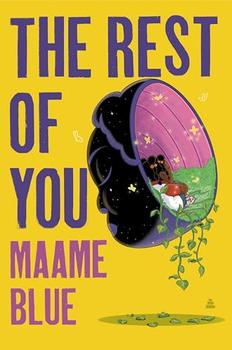Summary | Excerpt | Reading Guide | Reviews | Beyond the Book | Readalikes | Genres & Themes | Author Bio

BOOK I
SWEET SORROWS
Once, very long ago ...
There is a pirate in the basement.
(The pirate is a metaphor but also still a person.)
(The basement could rightly be considered a dungeon.)
The pirate was placed here for numerous acts of a piratey nature considered criminal enough for punishment by those non-pirates who decide such things.
Someone said to throw away the key, but the key rests on a tarnished ring on a hook that hangs on the wall nearby.
(Close enough to see from behind the bars. Freedom kept in sight but out of reach, left as a reminder to the prisoner. No one remembers that now on the key side of the bars. The careful psychological design forgotten, distilled into habit and convenience.)
(The pirate realizes this but withholds comment.)
The guard sits in a chair by the door and reads crime serials on faded paper, wishing he were an idealized, fictional version of himself. Wondering if the difference between pirates and thieves is a matter of boats and hats.
After a time he is replaced by another guard. The pirate cannot discern the precise schedule, as the basement-dungeon has no clocks to mark the time and the sound of the waves on the shore beyond the stone walls muffles the morning chimes, the evening merriment.
This guard is shorter and does not read. He wishes to be no one but himself, he lacks the imagination to conjure alter egos, even the imagination to empathize with the man behind the bars, the only other soul in the room beyond the mice. He pays elaborate amounts of attention to his shoes when he is not asleep. (He is usually asleep.)
Approximately three hours after the short guard replaces the reading guard, a girl comes.
The girl brings a plate of bread and a bowl of water and sets them outside the pirate's cell with hands shaking so badly that half the water spills. Then she turns and scampers up the stairs.
The second night (the pirate guesses it is night) the pirate stands as close to the bars as he can and stares and the girl drops the bread nearly out of reach and spills the bowl of water almost entirely.
The third night the pirate stays in the shadows of the back corner and manages to keep most of his water.
The fourth night a different girl comes.
This girl does not wake the guard. Her feet fall more softly on the stones and any sound they make is stolen away by the waves or by the mice.
This girl stares into the shadows at the barely visible pirate, gives a little disappointed sigh, and places the bread and bowl by the bars. Then she waits.
The pirate remains in the shadows.
After several minutes of silence punctuated by the guard's snoring, the girl turns away and leaves.
When the pirate retrieves his meal he finds the water has been mixed with wine.
The next night, the fifth night if it is night at all, the pirate waits by the bars for the girl to descend on her silent feet.
Her steps halt only briefly when she sees him.
The pirate stares and the girl stares back.
He holds out a hand for his bowl and his bread but the girl places them on the ground instead, her eyes never leaving his, not allowing so much as the hem of her gown to drift into his reach. Bold yet coy. She gives him a hint of a bow as she returns to her feet, a gentle nod of her head, a movement that reminds him of the beginning of the dance.
(Even a pirate can recognize the beginning of a dance.)
The next night the pirate stays back from the bars, a polite distance that could be closed in a single step, and the girl comes a breath closer.
Another night and the dance continues. A step closer. A step back. A movement to the side. The next night he holds out his hand again to accept what she offers and this time she responds and his fingers brush against the back of her hand.
The girl begins to linger, staying longer each night, though if the guard stirs to the point of waking she departs without a backward glance.
Excerpted from The Starless Sea by Erin Morgenstern. Copyright © 2019 by Erin Morgenstern. All rights reserved. No part of this excerpt may be reproduced or reprinted without permission in writing from the publisher.




Judge a man by his questions rather than by his answers.
Click Here to find out who said this, as well as discovering other famous literary quotes!
Your guide toexceptional books
BookBrowse seeks out and recommends the best in contemporary fiction and nonfiction—books that not only engage and entertain but also deepen our understanding of ourselves and the world around us.